ARTICLE AD BOX

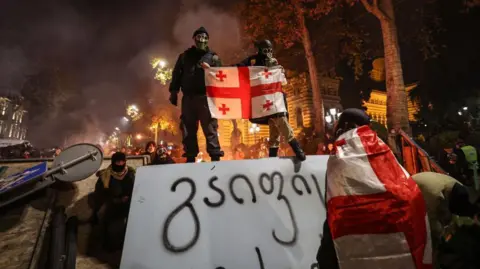 GIORGI ARJEVANIDZE/AFP
GIORGI ARJEVANIDZE/AFP
Opposition parties said the third night of protests was the biggest so far
After nights of large-scale street demonstrations and a string of public resignations, Georgia's prime minister has rejected calls for new elections and said protesters have fallen victim to opposition lies.
Irakli Kobakhidze confirmed reports that Georgia's ambassador to the US, David Zalkaliani, had become the latest senior diplomat to stand down, stressing that he had come under considerable pressure.
Protests were set to continue on Sunday for a fourth night running, as Georgians vented their anger at the ruling party's decision to suspend talks on joining the European Union.
Kobakhidze sought to deny the reason for the protests, saying on Sunday that "we have not suspended anything, it's a lie".
Only three days before, his party Georgian Dream had accused the EU of using talks on joining the union as "blackmail" and said the government had decided not to put the issue on the agenda until the end of 2028.
It is part of Georgia's constitution to ensure that "all measures" are taken to bring the country into both the EU and Nato.
However, Georgia's increasingly authoritarian government has been accused by the EU and US of democratic backsliding. On Saturday, the US said it was suspending its strategic partnership with Georgia.

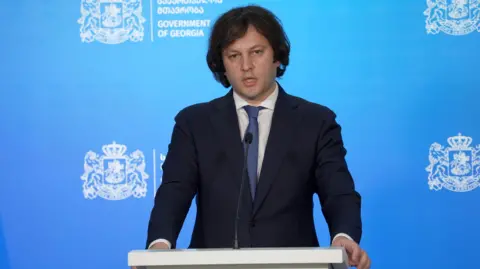 Anton Chicherov/BBC
Anton Chicherov/BBC
Iraki Kobakhidze rejected a call from the pro-Western president for new elections
Kobakhidze told the BBC's Steve Rosenberg at a news conference that Georgian Dream was still "committed to European integration... and we are continuing on our path to the European dream".
And yet an increasing array of public officials do not appear to believe that is the case. Several ambassadors have resigned, and hundreds of civil servants and 2,800 teachers have signed letters condemning the decision to put EU accession on hold.
Many Georgians have been shocked by the level of violence directed at Georgian journalists as well as protesters. Dozens of reporters have been beaten or pepper sprayed and some have needed hospital treatment.
Georgia's human rights ombudsman Levan Ioseliani said "this is brutality", and he appealed to police not to abuse their power. On Sunday, the prime minister said it was opposition groups and not the police that had meted out "systemic violence".
Georgian ex-ambassador to the EU Natalie Sabanadze, now at Chatham House in the UK, believes the level of violence, the string of resignations and civil disobedience indicate a "qualitative change" to the protests now taking place.
"Maybe [the government] thought people would be scared, but it's not working out like this," she told the BBC. "Yesterday civil society activists and artists went to the public broadcaster and took it over and forced their way into the live stream. I've seen this before, in pre-revolutionary Georgia [in 2003]."
Georgia's pro-Western president, Salome Zourabichvili, is due to step down in a matter of weeks, however since last month's contested parliamentary elections which opposition parties have denounced as rigged, she has become a powerful figurehead, rallying protesters against the government and calling for a new vote.
Georgia's pro-EU president vows to stay 'until someone is legitimately elected'
She and the protesters accuse the government of aiming to drag their country back into Russia's sphere of influence, even though an overwhelming majority of the population backs joining the EU.
Georgia has a population of some 3.7 million and 20% of its territory is under Russian military occupation in two breakaway regions.
After a third night of protests in Tbilisi and other Georgian cities such as Batumi, Zugdidi and Kutaisi, smaller groups occupied a traffic intersection during the day on Sunday in front of Tbilisi State University.
"I'm here for my country's future and the future of my three-year-old son," said one protester called Salome, aged 29. "I don't want him to spend his life at protests and I don't want a Russian government."
While Georgian Dream flatly denies any links to the Kremlin, it has in the past year adopted Russian-style laws that target civil society groups with funding from abroad as well as LGBT rights.


Cleaners remove graffiti from the walls outside parliament in Georgia
Half an hour's walk away from the daylight protest, a small army of cleaners were trying to scrub off graffiti from a wall in front of the Georgian parliament.
Some of the windows of the building were smashed overnight, and an effigy was set alight of Bidzina Ivanishvili, the billionaire seen as the driving force behind Georgian Dream's 12 years in power.
The question now is what will happen next in Georgia's deepening political and constitutional crisis.
The Georgian Dream government's relations with its Western partners are very badly damaged.
The EU's new foreign policy chief, Kaja Kallas, warned on Sunday that the government's actions would "have direct consequences from EU side", and the US decision to suspend its strategic partnership will also be widely felt.
The Georgian prime minister had little time for the president or her call for new elections.
"Mrs Salome Zourabichvili has four Fridays left [as president] and she can't get used to it. I understand her emotional state, but of course on 29 December she'll have to leave."

 1 month ago
11
1 month ago
11
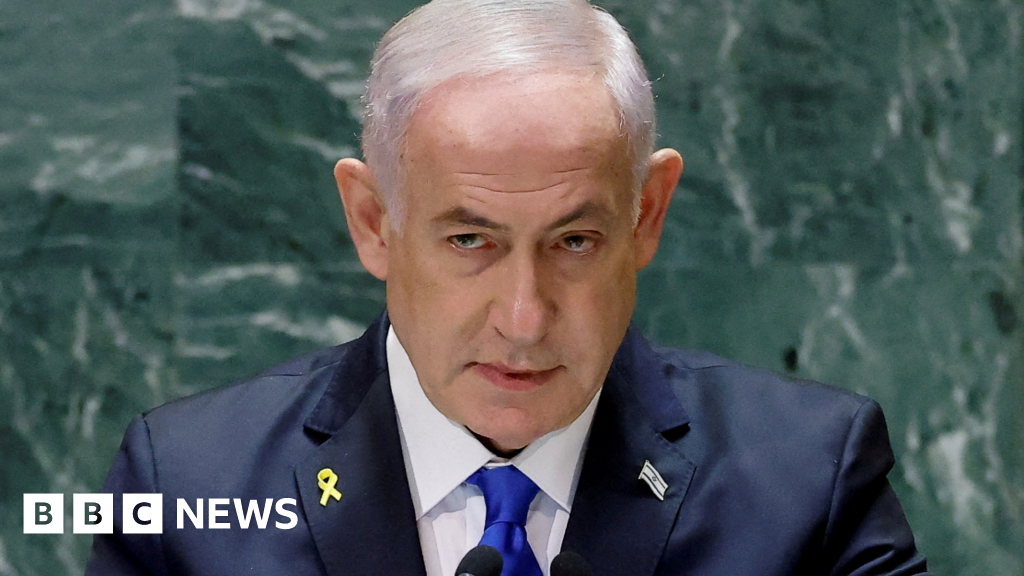
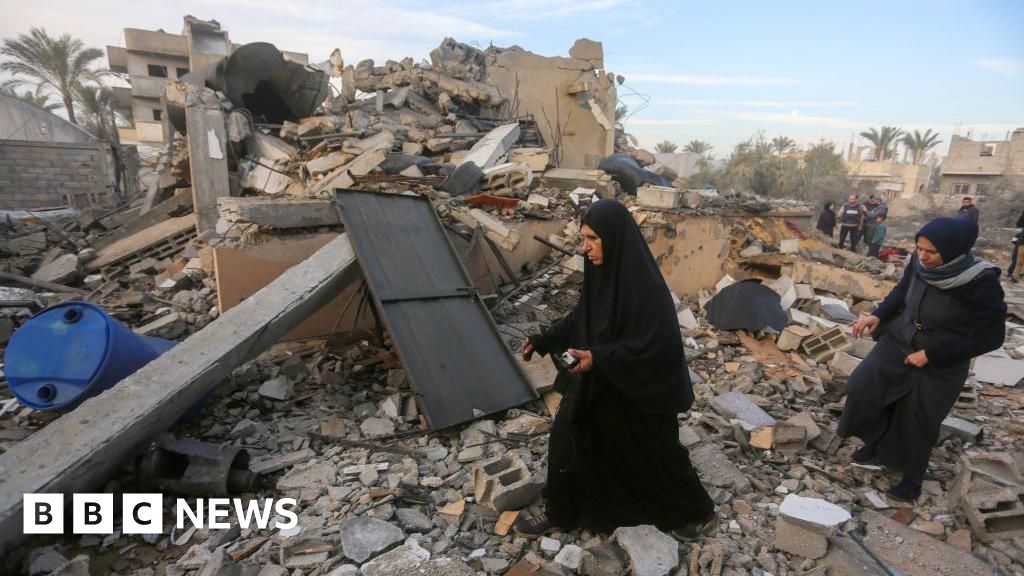
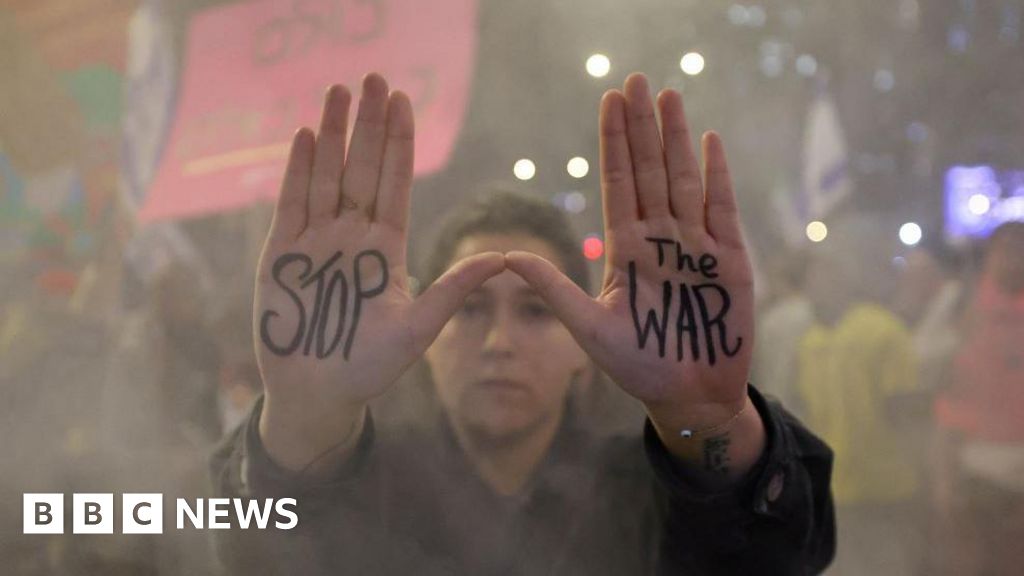





 English (US) ·
English (US) ·